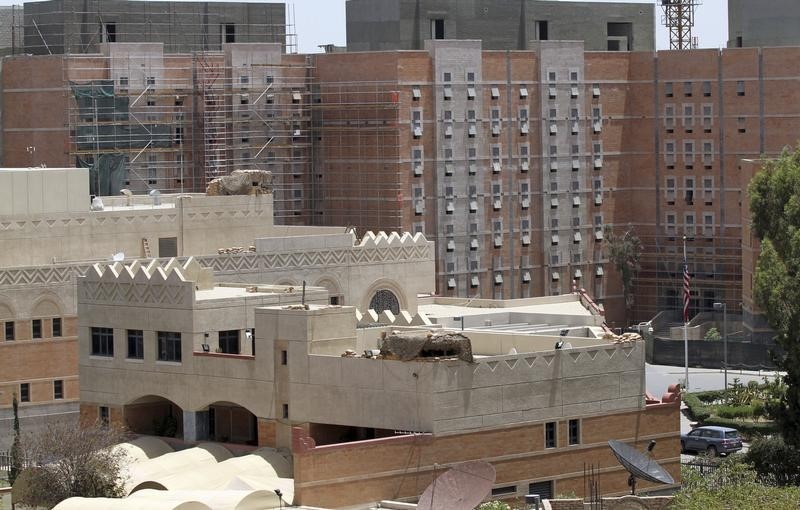WASHINGTON (Reuters) - The United States said on Monday it was closing its embassy in Yemen to the public for regular consular services amid political turmoil after the government resigned under pressure from Houthi rebels.
While the U.S. embassy in Sana'a will not offer routine consular services until further notice, the State Department said the embassy itself remained open in Yemen, where the U.S. government targets one of al Qaeda's most deadly offshoots.
"U.S. embassy in Sanaa remains open. Only routine consular services are closed to the public. We're still providing emergency consular services to U.S. citizens in Yemen," State Department spokeswoman Jen Psaki told reporters in Washington.
The decision to suspend such services was made "out of an abundance of caution and care for our employees and others who may be visiting the embassy," an embassy statement said.
Earlier, U.S. officials said they had reduced staff at the embassy following the civil unrest in the country.
Last week, the government of President Abd-Rabbu Mansour Hadi collapsed after it was confronted by the Iranian-allied armed Houthis. This deprived Washington of a staunch ally in its campaign against al Qaeda in the Arabian Peninsula (AQAP).
The situation on the ground has remained fluid and chaotic, other U.S. officials have said.
The White House has said it is committed to continuing its close cooperation with Yemen against the al Qaeda offshoot and at least some operations appeared to be continuing.
Local officials said a suspected U.S. drone had attacked a car in Yemen's eastern Marib province on Monday, killing three suspected al Qaeda militants.
One U.S. security official who spoke on condition of anonymity told Reuters in Washington the most likely reason the Embassy was closed to the public was that it was surrounded by "chaos."

In its statement, the embassy said it was "unable to provide routine consular services and will have very limited ability to assist with emergency cases involving U.S. citizens" given the government resignations and "the ongoing security concerns."